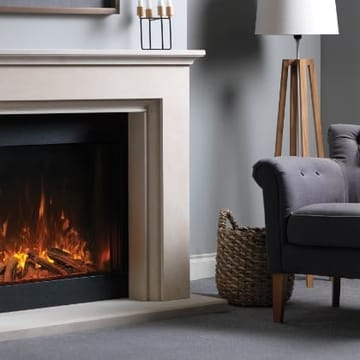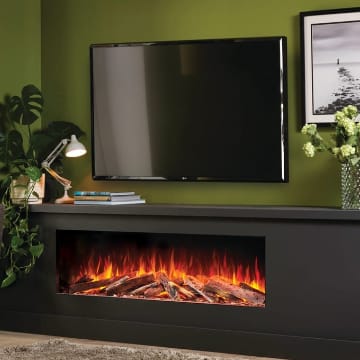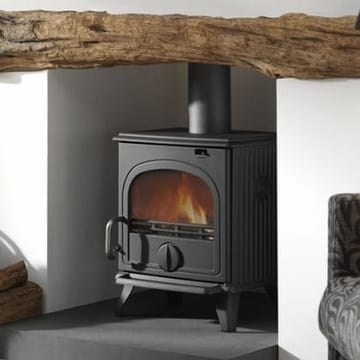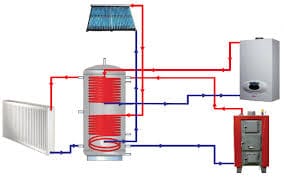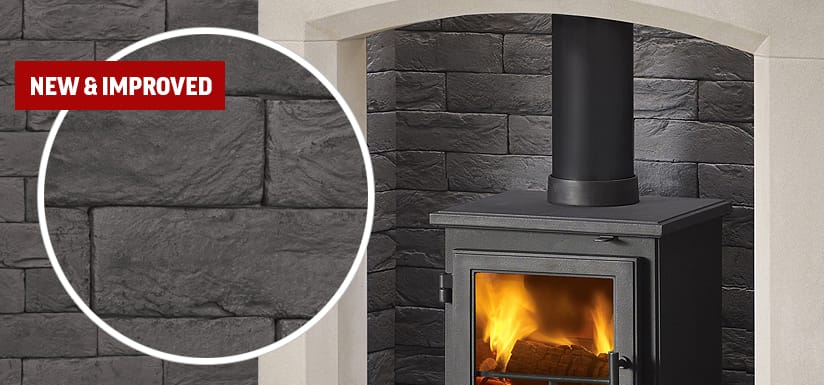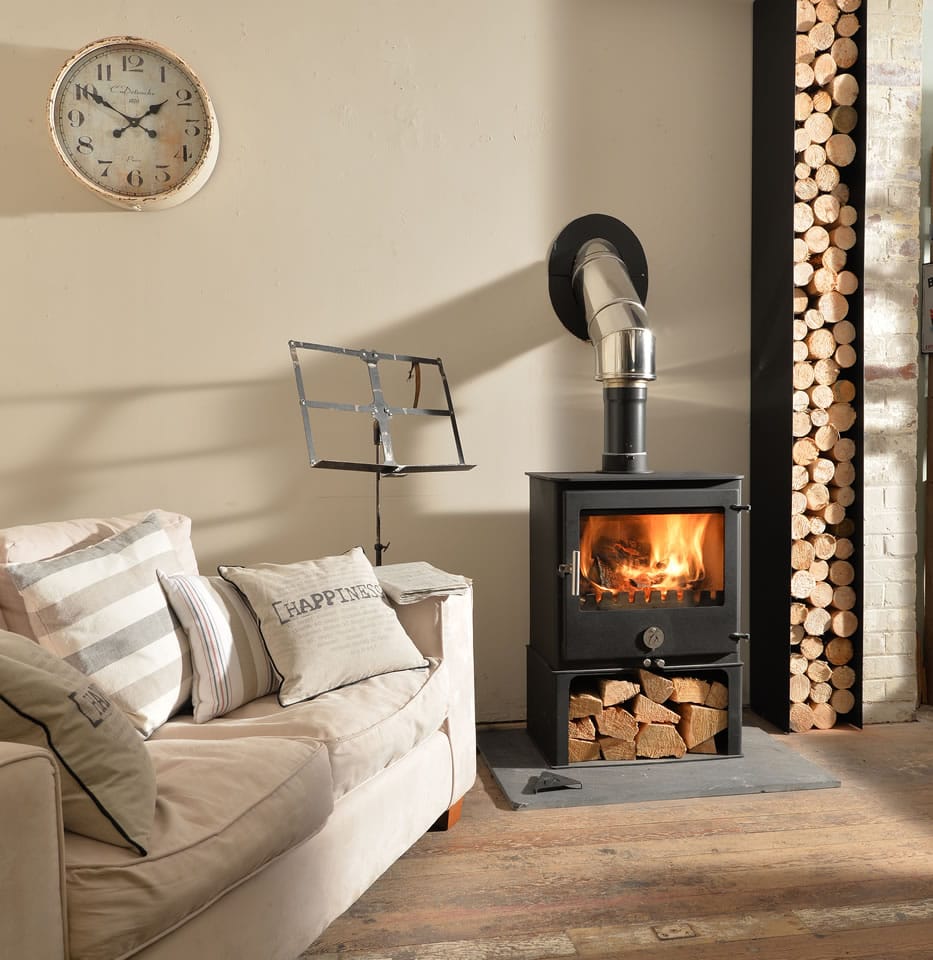Thermal stores
Thermal stores are starting to be used in domestic heating technologies as a means of storing excess heat. They can be used with individual, or combined with different, renewable heating technologies. They can also be used with conventional boilers or immersion heaters.
Thermal stores have been proven to work well with wood-fuelled biomass boilers, heat pumps, wind energy and solar water heating systems.
What is a thermal store?
A thermal store is a way of storing and managing renewable heat until it is needed. Heated water, in a domestic setting, is usually stored in a large insulated cylinder. A thermal store may contain one or more heat exchangers, it may also include an electrical heating element, such as an immersion heater.
A purpose built thermal store can take inputs from a number of different technologies, such as, a wood fuelled boiler, solar water heating or a heat pump and store the generated heat.
What can a thermal store provide:
- Space heating and mains pressure hot water.
- Space heating only (which may be the case with a heat pump system).
- Hot water only (common in the case of a solar water heating system).
The thermal store truly comes into its full potential when used to store and manage several different heat inputs and outputs. It can allow you to use your excess solar water heat for room heating or act as a heat pump pre-heat when this is used to supply hot water.
The benefits of a thermal store
- Allows management of the difference in time between when heat is available and when it is needed.
- Enables water to be heated up by a secondary heating source such as a conventional boiler or electric immersion heater.
- Enables a renewable heating system to work more efficiently. This is particularly relevant to wood-fuelled heating systems such as log boilers that operate much more efficiently if they are used at maximum output rather than kept ticking over.
- Lets you use a wood burning boiler stove or a stove with a back boiler at maximum efficiency without overheating the room.
- Reduces the need to buy expensive fossil fuels to meet on-demand hot water or space heating.
Types of thermal store
Below are a list of the types of thermal stores available:-
Thermal stores for wood-fuelled heating
A log boiler linked to a large thermal store can be used more efficiently , as the thermal stores are important for the efficiency of biomass heating systems, particularly log boilers, which are designed to burn larger batches of logs at high levels of efficiency, instead of smaller quantities through out the day.
Thermal stores used with wood-fuelled heating systems are designed to provide hot water for space heating and domestic hot water, which makes them rather big. They typically hold between 500 to 5000 litres of water and can store hot water for days if properly insulated.
You can get smaller thermal stores, about 300 litres, which can work well with boiler stoves and stoves with back boilers. These stoves are the type that are in living spaces and fed with fuel throughout the day. Also pellet boilers can have a smaller thermal store as it is better able to deal with quickly changing heat demands.
Thermal stores for solar water heating
Thermal stores allow solar thermal heat to be used for space heating and hot water. The thermal store can also be designed to prioritise solar thermal heat above all other sources. This will mean that if solar heat is available, no other heat source will come on.
Thermal Stores for heat pumps
A thermal store can help prolong the life of the pump and compressor as they will not have to continually cycle on and off.
Combining technologies
A thermal store allows you to link up a number of different heating systems. If you connect both a wood burning boiler stove and solar water heating system, you will be able to have hot water in the summer without having to light the stove.
You can also connect the following to a thermal store:
- One or more renewable energy technologies (solar, biomass, heat pump).
- A conventional boiler.
- An Aga type range with a boiler.
- Electrical heating elements such as an immersion heater.
